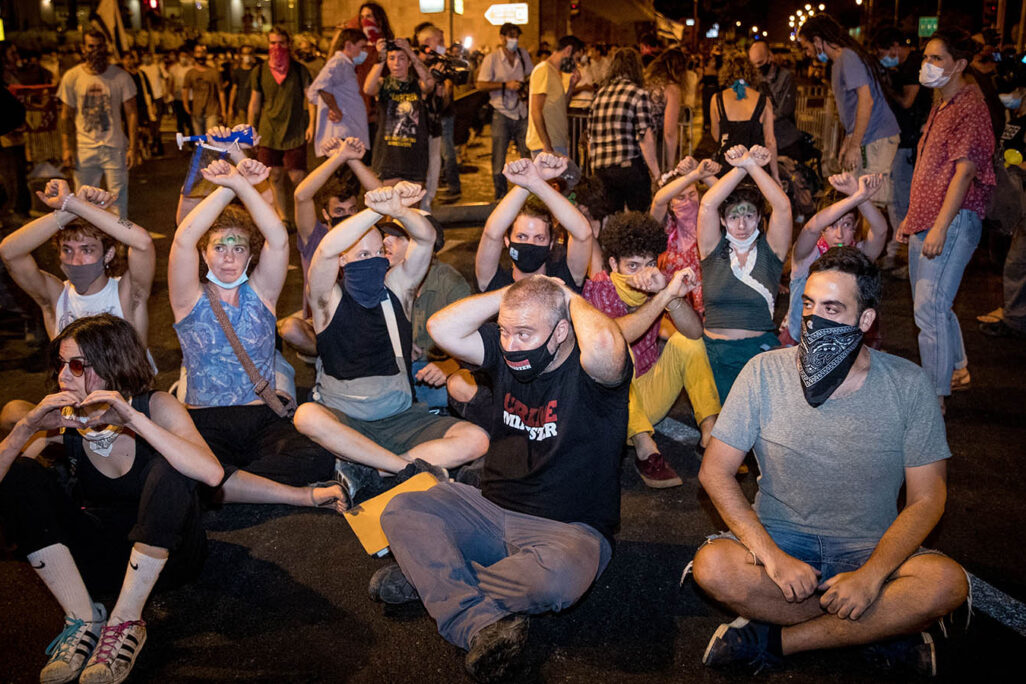
When the Knesset decided this week not to approve the Netanyahu administration’s COVID-19 plan, they laid bare a deep public distrust of the administration’s COVID-19 response. The government-public distrust is even more problematic than the possibility of infection in swimming pools, according to Professor Ora Paltiel, epidemiologist at Hadassah Hospital in Jerusalem, and former head of the School of Public Health at Hadassah and the Hebrew University.
"It seems that the problem of public confidence in the management of corona reached the Knesset,” says Prof. Paltiel. “The administration makes decisions, and even the Knesset doesn’t trust the decisions that are made. Hezi Levi, the Director General of the Health Ministry, said that he regrets that the Knesset did not act according to the administration’s suggestion to close the gyms. I also regret it, as I think that gyms really could be infection sites. But the government that’s now warning against going to the gym, is the same government that banned people from doing outdoor exercise more than 100 meters from their home, with no epidemiological justification. People lose their trust.”

Paltiel says that the breakdown in trust has serious ramifications that are likely to intensify.
“People are so angry and worried about the financial situation, and by the feeling that the government is stepping all over them, that they don’t believe that there is a virus, and act accordingly. For example, people are not internalizing that they shouldn’t be crowding together, which is very dangerous. There is no doubt that crowds are like oxygen for corona,” Paltiel says. “People that don’t feel that they are part of the solution will do all the wrong things, and then we will be forced to enter a lockdown. It really worries me, because public trust is the basis of public health. But trust will not come from intimidation.”
Paltiel points out that according to what we know now, there is danger of infection with opening the gyms. “There is evidence from Korea that there is danger of infection in gyms. I can’t say that this is a safe move. It’s an air-conditioned and closed space, people are running and breathing hard next to each other. It can be an infection site,” she says.
Pools, according to her, are different: “The pool itself is probably not dangerous. The question is what happens in line to get in and at the kiosk.”
However, she emphasizes that the decision to close gyms and pools needs to be part of a wider and more clear approach – which is clearly absent at the moment. “The public, especially in the summer, needs to live, as long as we are not in lockdown. And that isn’t clear at the moment. There is a lot of logic in minimizing activities that aren’t essential in order to minimize morbidity, but I don’t think that the public will accept these restrictions. If we are not in lockdown, we need an answer for physical activity, and for leisure activities as well.“
So which restrictions are appropriate for the current moment, when we are trying to avoid a total lockdown but also control the spread of the virus? According to Paltiel, the government needs to explain its decisions to the public based on clear-cut facts. She says that one of the issues is the Health Ministry hasn’t been conducting epidemiological research into which steps would realistically stop the coronavirus from spreading.
“We need to know more about infection sites around the country,” she says. “For that, we need a framework for collecting and screening data, and epidemiological research that happens immediately after the diagnosis date, when people still remember what they were doing. We also need technological solutions – I’m not talking about location tracking, but rather tools that will help people remember and document where they were. We are the startup nation, but we aren’t using the tools we have to collect data that we need.”






